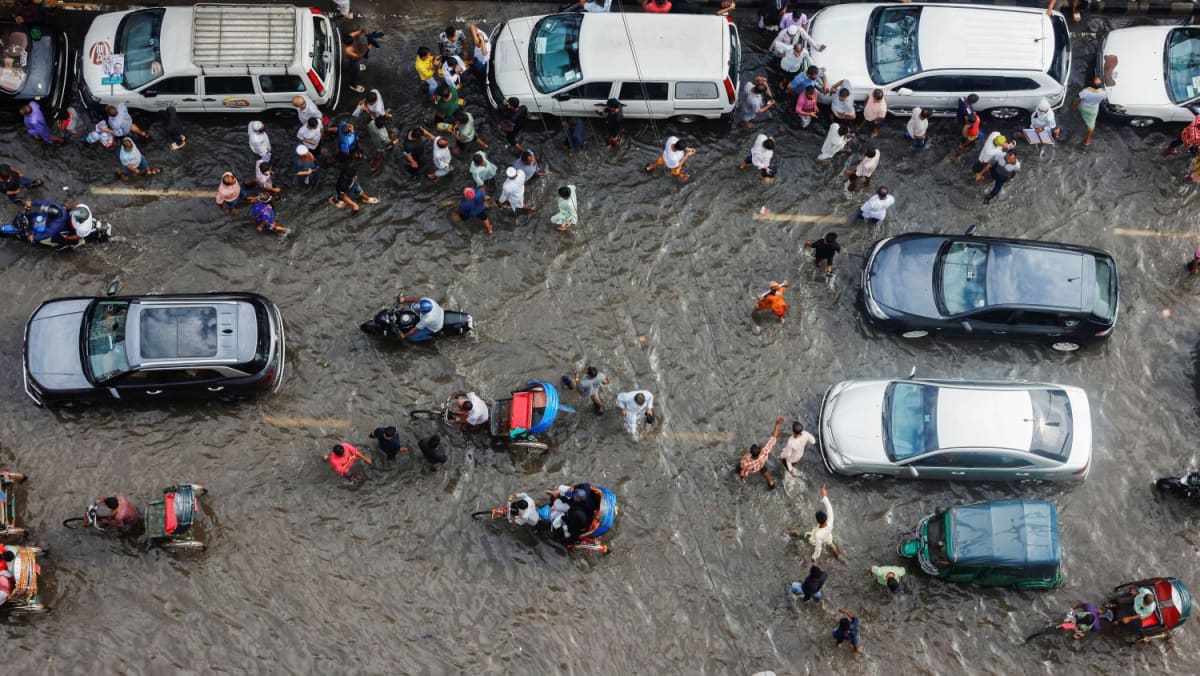DHAKA (Bangladesh) — As Ripon Mondal’s family try to recover from the drought that ruined their watermelon crop in central Bangladesh last year, the 19-year-old college student fears that his father’s financial worries are just the tip of the iceberg.
“We usually understand resilience as building back the physical assets and infrastructure, but disasters hit minds too, and in multiple ways,” she told the Thomson Reuters Foundation.
CLIMATE ANXIETY CONNECTED TO SOCIOECONOMIC SITUATION
Globally, growing scrutiny of and studies on the link between climate change impacts and mental health condition have given rise to terms such as “climate anxiety” and “eco-grief”.
Ms Sally Weintrobe, a longstanding member of the Climate Psychology Alliance – a professional group based in Britain – said psychological responses to climate disasters from hurricanes to flooding can be shaped by how people relate to each other within their community, and what resources they have.
People from poorer and climate-vulnerable nations like Bangladesh “are not only victimised, but are also the ones who lack the resources to rebuild their lives,” said Ms Weintrobe.
By 2050, 13 million people in Bangladesh could be uprooted within the country by climate change, the World Bank has warned.
Psychologists in Bangladesh said the grief and anxiety caused by climate change often comes from an overwhelming sense of helplessness rooted in communities’ economic situation.
“The poor – whose livelihoods are already fragile and whose access to government support is limited – live on under threats looming in the horizon,” said Mr Rahman of the University of Dhaka.
Furthermore, there is still a lot of stigma around mental health issues and treatment, and people – especially in rural areas – often turn to traditional medicine and healers for help.
Mr Depon Chandra Sarker, a child psychologist at the Patuakhali Medical College, a government institution, said that seeking support for mental health problems is still rare in local communities “unless someone gets really out of control”.
BRIDGING THE MENTAL HEALTH GAP WITH TECHNOLOGY
In remote parts of Bangladesh – including the disaster-prone south – most of the district and sub-district hospitals lack any mental health professionals, according to Mr Sarker.
To tackle this scarcity, the government and NGOs often run mental health campaigns where psychotherapists visit remote communities and provide information and counselling. But one-off initiatives do not always work for climate-hit communities in need of longer-term support, several psychologists said.
Putting technology to good use is seen as one solution.
The country’s climate adaptation plan recommends extending telehealth services – delivered over the phone or online – for people whose mental health is affected by climate change.
The start-up Moner Bondhu is already training volunteers at the grassroots level who can put people needing climate-related psychological support in touch with a counsellor by phone.
Meanwhile, some government-employed professionals – such as Bagerhat-based psychiatrist Mehedi Hasan – hold meetings on Zoom to educate health workers and emergency responders about the mental health care disaster-hit people may need.
“You cannot make a clean slate of the world’s hazards causing you stress,” said Mr Hasan. “The point for the most vulnerable is how to remain functional despite them.” REUTERS


